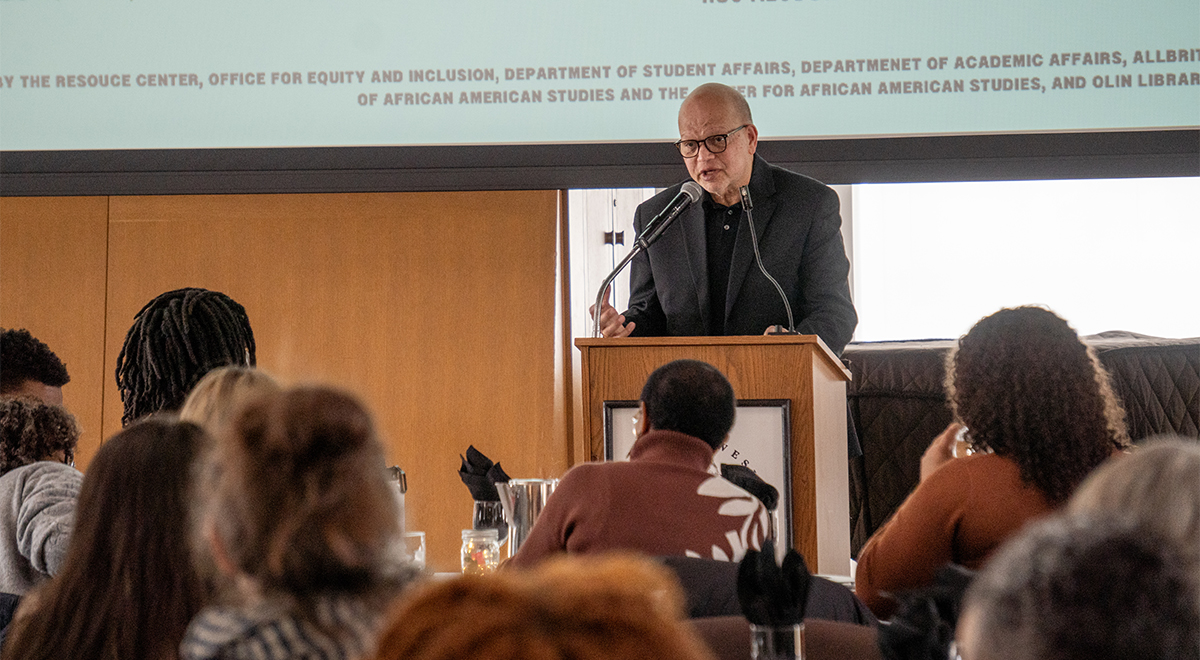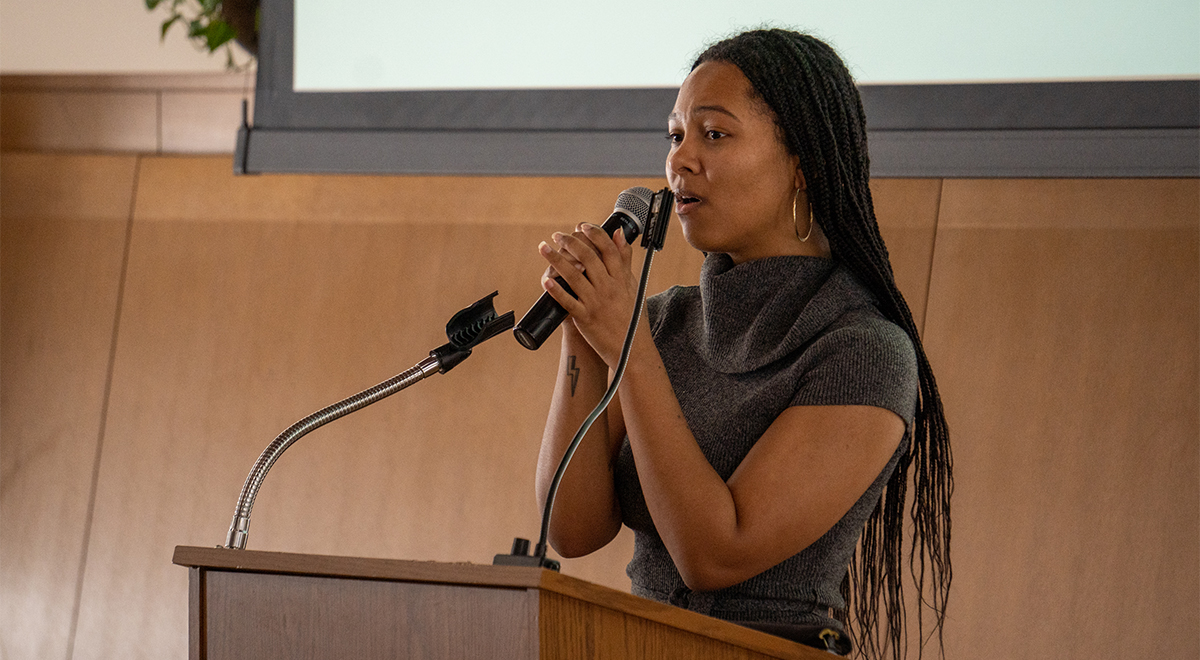Theodore Shaw ’76 Gives Annual MLK Talk

Alumnus, professor, and civil rights attorney Theodore M. Shaw ’76 returned to Wesleyan on Feb. 11 to deliver the 2025 Dr. Martin Luther King, Jr. Commemorative Luncheon keynote address. During his talk, Shaw reminisced about his time at the University, shared highlights of his career, and offered his thoughts about the current political moment.
Standing at the podium, Shaw paused to honor the Hall’s namesake, Edgar Beckham, who was the first African American dean at the University. He also recalled that as a student he had played pickup basketball in the same space which was once known as the small gym.
As the Julius L. Chambers Distinguished Professor of Law and director of the Center for Civil Rights at the University of North Carolina Chapel Hill School of Law, Shaw shared how he had started his legal career at the Justice Department’s Civil Rights Division. During his three years there, Ronald Reagan became president. While he knew he would disagree with the new administration, he also accepted the president’s right to make policy, he said. During that time, he recalled with pride how while in court, he would state his name and say that he was representing the United States of America.
His other dream job was working for the NAACP’s Legal Defense Fund for more than a quarter century. He fondly recollected staying close to the Justice Department, arguing with the assistant attorney general for civil rights, opposing him in court, and publicly debating him.
With this distinguished resume, including his work in government, Shaw expressed dismay at the apparent loyalty test for today’s Justice Department employees and attempts by the administration to fire anyone in the executive branch. “This is not the country I recognize,” said Shaw.
From that somber point, Shaw pivoted to hope with the story of his grandmother who had earned a living as a domestic worker. He was proud to say that she had traveled by bus to participate in the 1963 March on Washington, where Dr. King delivered his famous speech. Years later, Shaw became a close friend of Yolanda King, one of King’s children, so he was aware of how the family responded to distortions of King’s legacy. “Yes, he said that he wanted to live in the world where his four little children would be judged by the content of their character rather than by the color of their skin,” Shaw said. But “he didn’t mean that people should not see or recognize the significance of race and color, as long as race and color continue to be significant.”
“It’s important for us to be truthful about our history,” he added.
As a civil rights lawyer, Shaw had worked on several important civil rights cases of our time, including the last mandatory school desegregation cases before the Supreme Court, Missouri vs. Jenkins. He also taught at the University of Michigan Law School, where he played a key role in initiating a review of its admission policy, later upheld by the Supreme Court. Making the point that the torch is being passed to the next generation, including his current law students, he said, “it’s important for somebody to continue to carry that torch and fight that fight.”
While the country is deeply divided now, Shaw noted it has been even more divided historically, most notably during the Civil War. To those who are concerned about the present moment, he made the point that one of the worst Supreme Court decisions—the Dred Scott case that denied citizenship to people of African descent—was followed eight years later by the end of slavery.
At a time when the basis of U.S. citizenship is being challenged again, Shaw said he doesn’t know what the future holds. “But I know that all of us have the obligation, all of us who believe in freedom and democracy have the obligation to find our place to work, to salvage democracy in our country,” he said. “All of you have that obligation. And you have to figure out what that means for you. Each one of you has to figure out what that means.”

The talk was followed by a brief Q&A and a soulful rendition of the Black National Anthem, “Lift Every Voice and Sing,” sung by Hyacinth Tauriac ‘25. Additional students involved in the program included Ronald Ceesay ’27 and Tre Studgeon ‘26. The event was sponsored by The Resource Center, Office of Equity and Inclusion, Department of Student Affairs, Department of Academic Affairs, Allbritton Center for the Study of Public Life, Department of African American Studies and the Center for African American Studies, and Olin Memorial Library.

